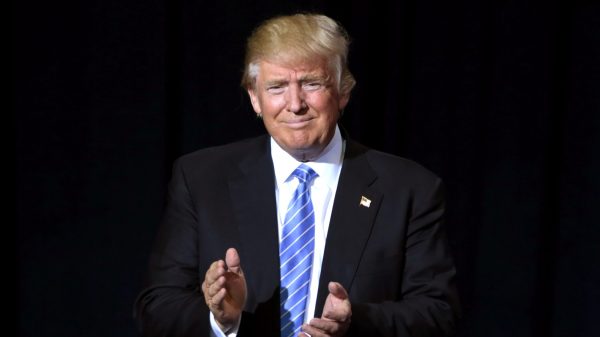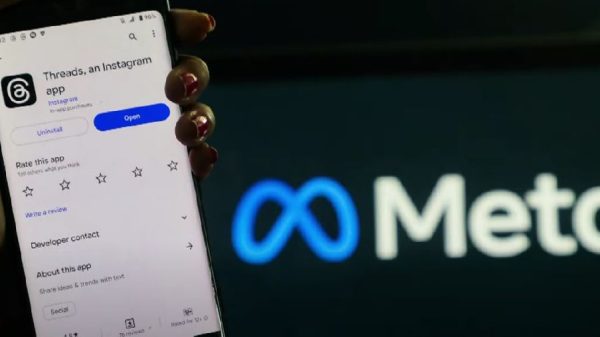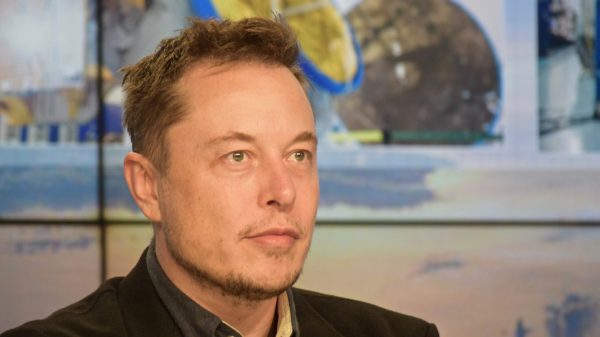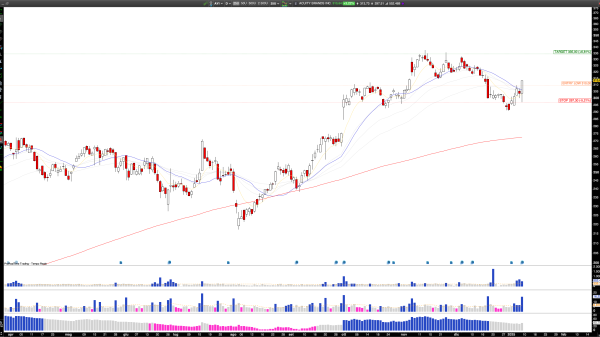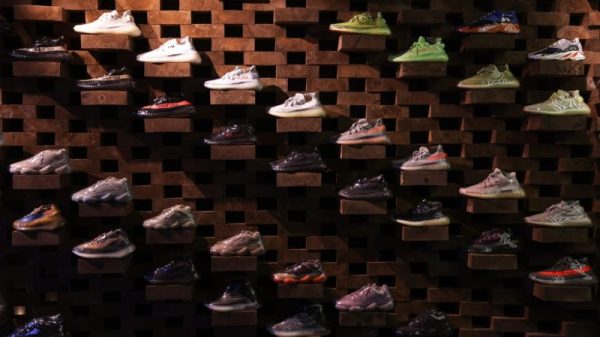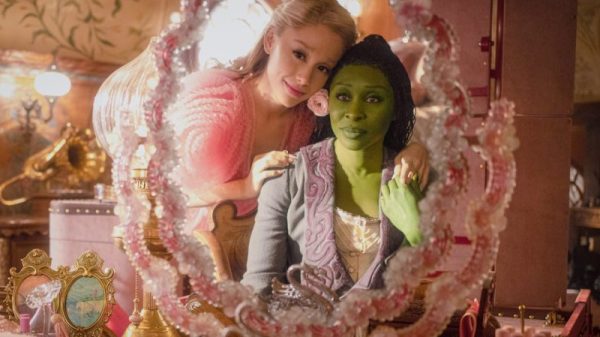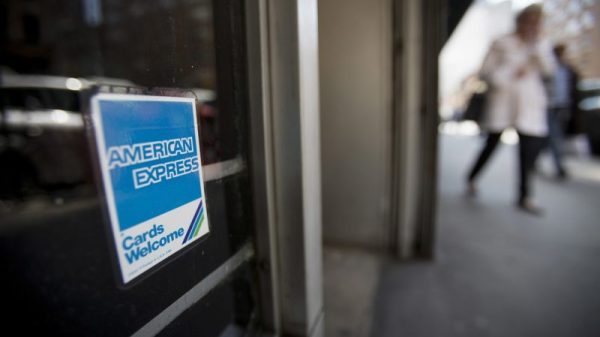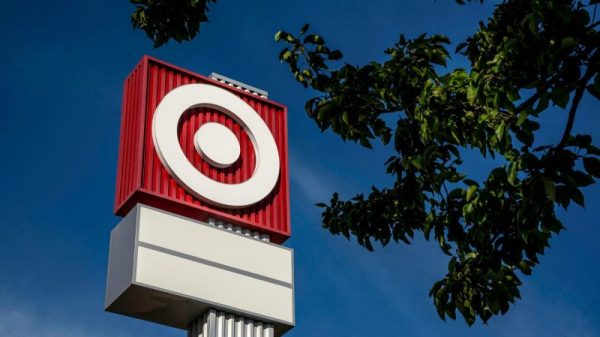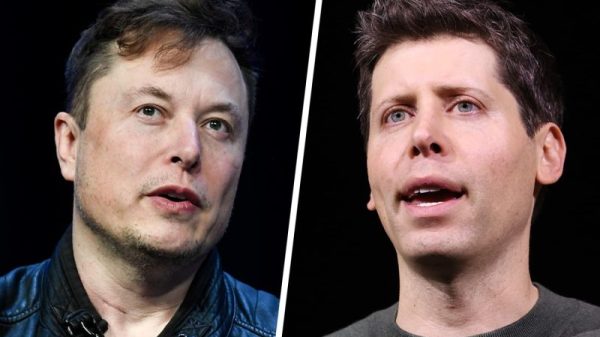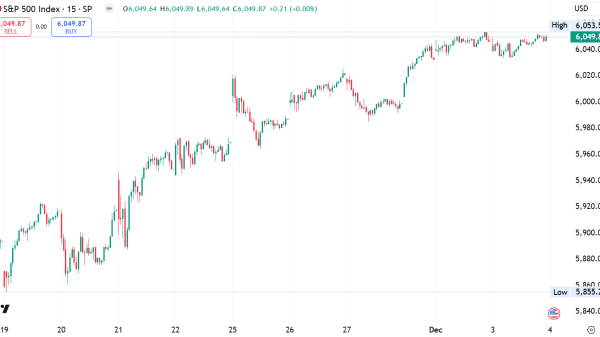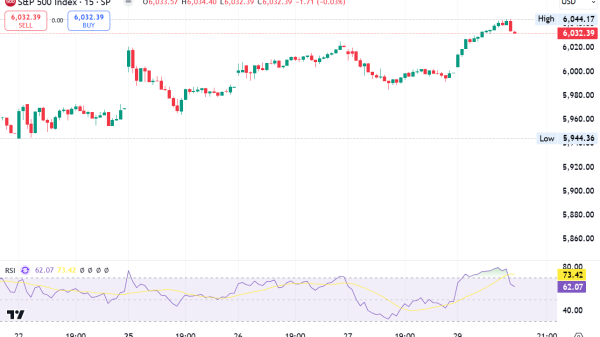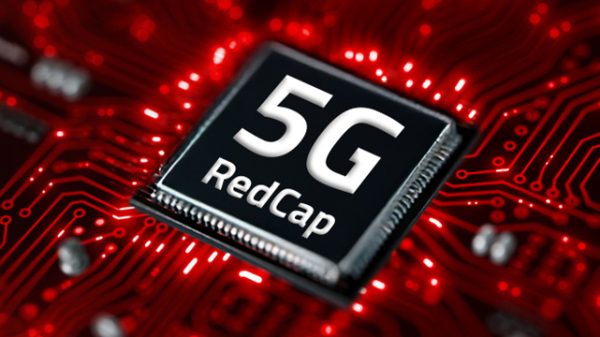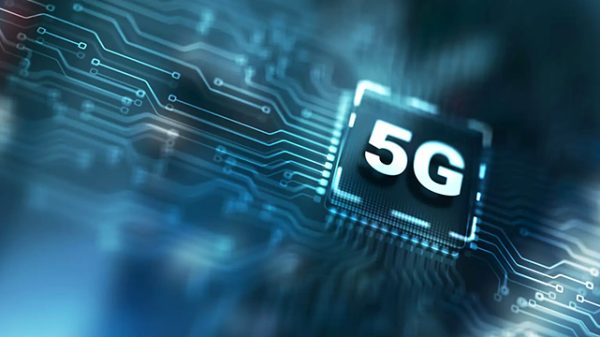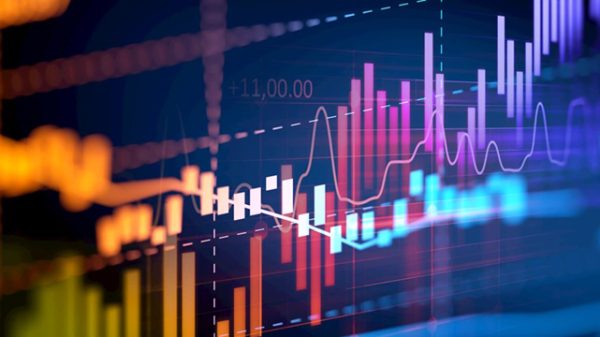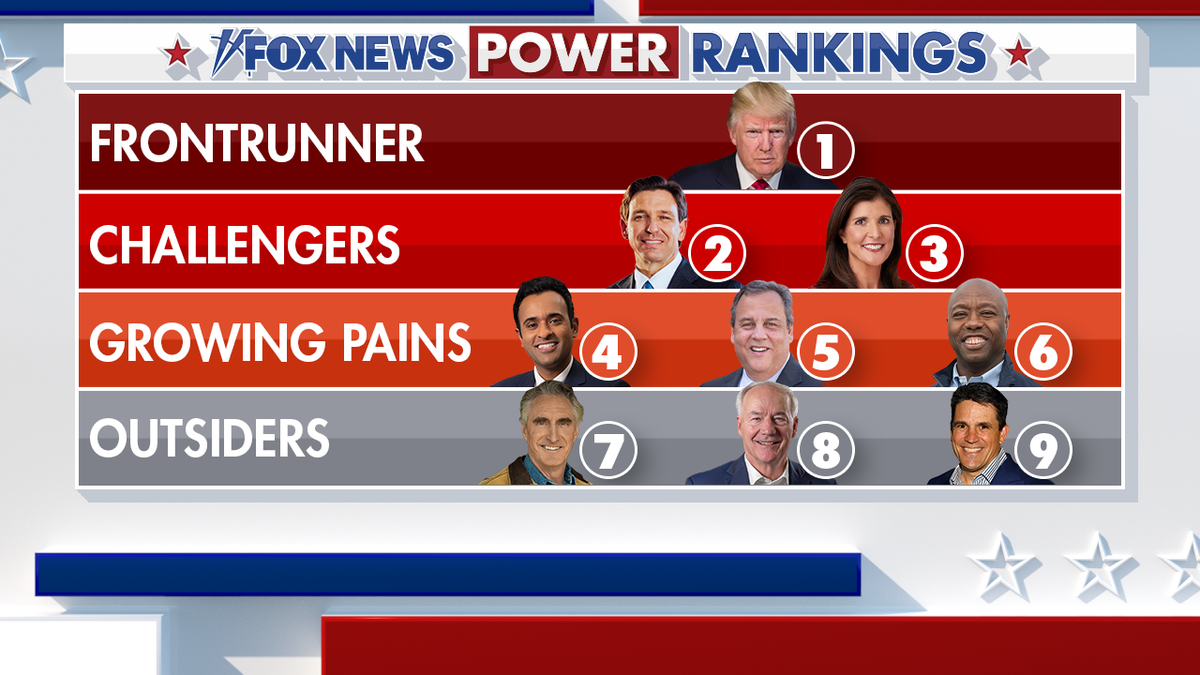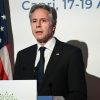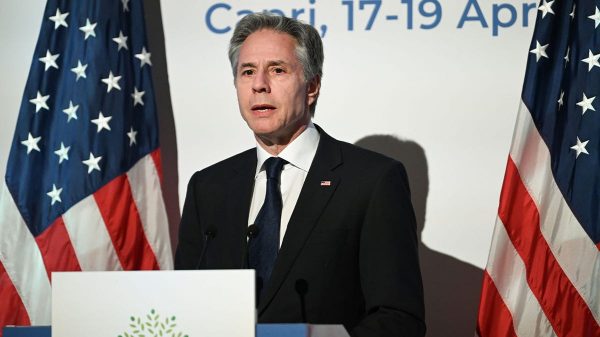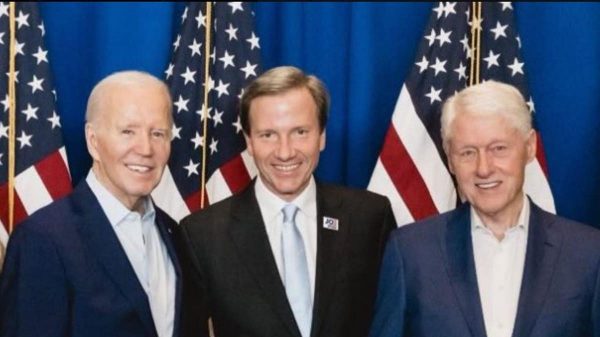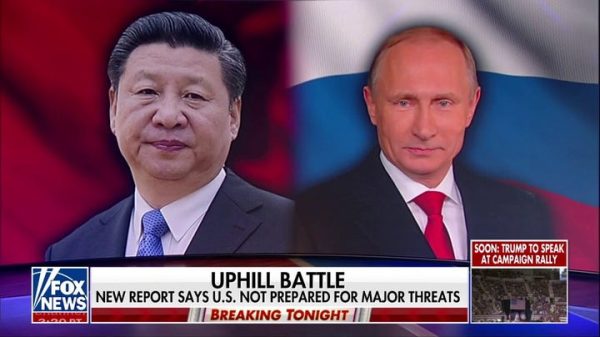Iowa voters are less than three months away from casting their ballots for a presidential nominee, but the GOP primary has taken a backseat to foreign conflict and chaos on Capitol Hill, solidifying Trump’s lead in a narrowing field.
Frontrunner: Trump
Days after the second Republican debate, a surprise attack on Israel by the terrorist group Hamas turned the world’s attention to the Middle East. With Israel putting more pressure on Gaza and a rising death toll, this conflict has been the top story ever since.
There’s little daylight between Trump and his chief rivals on the U.S. response. The former president has a history of pro-Israel policy making, led by the Abraham Accords and an embassy move from Tel Aviv to the U.S.-recognized capital city of Jerusalem. (That move dismayed Palestinians, who claim that at least part of Jerusalem is their own capital, not Israel’s.)
The upshot is that there are fewer opportunities for Trump’s challengers to get noticed on the campaign trail, right at the moment when voters in the early states would normally start paying more attention to the race.
That is ideal for any leading candidate, but especially one with the margins that Trump continues to enjoy. Nationally, Trump sits at 59% and 58% in recent Fox News and Suffolk surveys. His support is softer in the early states, but has never dipped beneath the low 40s.
Trump also reminded Republicans that he holds the keys to the GOP base during this month’s speaker battle. He helped tank House Republican Whip Tom Emmer’s bid for the speakership in a matter of hours, while cheering on the eventual winner, Rep. Mike Johnson.
Johnson is one of Trump’s closest allies, and aided Trump in his efforts to overturn results from key states after the 2020 election.
Challengers: DeSantis & Haley
Trump’s commanding lead and influence does not mean the race is over. The second place candidate in Iowa, or ‘Iowa Silver,’ has a narrow opportunity to reshape the race in the weeks between those caucuses and Super Tuesday.
(For more on this, see analysis with Fox News Decision Desk Director Arnon Mishkin from this weekend.)
Two candidates have positioned themselves to take that opportunity.
First, Gov. Ron DeSantis, who is locked in at second place in these rankings, maintains double-digit support in recent Iowa, New Hampshire and South Carolina polls, and has the highest favorability of the field in Iowa, where a new Des Moines Register/NBC News poll was released this week.
He also has an edge against the rest of the field nationally.
And DeSantis is a resilient fundraiser, bringing in $11.2 million between July and September. That is a 44% decline from his second quarter (April-June) figures, but after Trump, it’s still the most money raised out of any candidate.
Former Governor Nikki Haley moves up to third in the rankings, on the back of a strong month on the trail:
Haley is tied with DeSantis in Iowa (DMR/NBC), leads in New Hampshire (Suffolk/Boston Globe), and has the support of 22% of voters in South Carolina (CNN/SSRS). She lags in some national polls.
Along with DeSantis, she had a strong second debate performance.
59% of voters in Iowa have a favorable view of her, putting her near Trump and DeSantis (and Scott, who has other problems) (DMR/NBC).
The last point is important for the Haley team. Her position on key issues in the race, particularly America’s role in world events, is not shared by a majority of GOP voters. That has helped Haley position herself as a real alternative to Trump, but also limits her appeal to the base.
Maintaining a high favorable rating shows that despite those differences, a majority of voters are still open to considering her.
Finally, the pathway for ‘Iowa Silver’ got a little wider on Saturday, when former Vice President Mike Pence suspended his campaign.
As this column has argued before, Pence’s best shot was with evangelicals in Iowa, but that support never materialized, and the broader Republican base defined him by his decision to certify the results of the 2020 election.
His exit should provide a very modest boost to Haley, who sits closer to Pence’s ideology than she does to Trump’s or DeSantis’.
Growing pains: Ramaswamy, Christie & Scott
Vivek Ramaswamy moves down to fourth in these rankings. He has a strong national profile and continues to excel at earned media, but it hasn’t helped him in Iowa, where he received 4% in the same DMR/NBC poll.
The source of the problem is his high unfavorable ratings: in that survey, he comes out as the third most disliked candidate in the field. 37% of voters say they have a mostly or very unfavorable view of him, topped only by Christie & Hutchinson.
The entrepreneur has a clearly defined lane – ‘I can go further than Trump’ – but most Republican voters like the former president’s platform as is, and those who don’t like it are looking for a strong alternative to Trump, not a more concentrated version of the ‘MAGA’ ideology.
Despite his very high unfavorable ratings, former Gov. Chris Christie moves up to fifth place in these rankings. Like Ramaswamy, Christie’s lane is narrow but clearly defined – the 20-25% of GOP voters who don’t like Trump – and that minority is steadfast in their opposition to him.
Senator Tim Scott, who moves from fifth place to sixth, has the opposite problem. He is well-liked by the broad Republican electorate, but hasn’t done enough to persuade them to vote for him.
As this column pointed out in September, his policy and messaging looks fairly similar to Haley’s, and his fellow South Carolinian moved early with a fiery performance in the first debate to capture the bulk of voters looking for that style of candidacy.
Scott adopted her strategy in the second debate, but didn’t move the needle. He is hovering around the 1-3% mark nationally, and now trails Haley by 16 points in his home state (CNN/SSRS).
He remains a contender in Iowa, where he polls at 7%, so if Haley stumbles before January, he is the best placed candidate to absorb her votes.
Outsiders: Burgum, Hutchinson & Binkley
North Dakota Governor Doug Burgum still leads the bottom tier of the rankings. Most GOP voters said they hadn’t heard of him after he appeared at the first debate, and he hasn’t seen any more support after the second.
Meanwhile, former Arkansas Governor Asa Hutchinson is polling at 1% in Iowa (DMR/NBC) and less than 1% nationally (Suffolk). His pathway through the primary is less clear than Pence’s was.
Ryan Binkley joins the rankings in last place. The businessman and pastor has no governing experience or national profile, but has opened his checkbook, spending over $5 million since July. He polled at 0% in the same Iowa survey.
The countdown to Iowa continues
75 days from now, Iowa voters will give these candidates their first chance to win delegates. They will need more than an estimated 1,236 delegates over the course of the primaries to win the nomination.
In the meantime, five candidates say they have qualified for the next Republican debate, on November 8: DeSantis, Haley, Ramaswamy, Christie, and Scott.
Ramaswamy and DeSantis have signed up for inter-party debates: Ramaswamy will face progressive U.S. House Rep Ro Khanna, D-Calif., tonight in New Hampshire, and DeSantis has agreed to debate another Californian, Governor Gavin Newsom, in a special edition of ‘Hannity’ on November 30.
Stay tuned to Fox News Channel for breaking news from the trail, exclusive interviews, and powerful analysis as Democracy 24 continues.
Rémy Numa is the lead political affairs specialist for Fox News Channel. You can follow him on Twitter: @remynuma.


